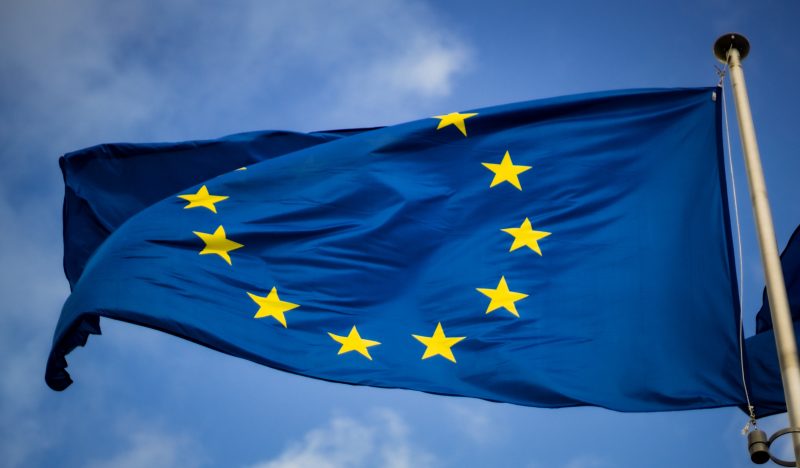 The EU has now announced the compromises it is prepared to make over the Northern Ireland Protocol. Colin Murray writes that Unionist parties face multiple risks if they continue to back the UK Government in its effort to dismantle the Protocol.
The EU has now announced the compromises it is prepared to make over the Northern Ireland Protocol. Colin Murray writes that Unionist parties face multiple risks if they continue to back the UK Government in its effort to dismantle the Protocol.
The UK and EU are (still) presenting diametrically opposed accounts of the UK-EU Withdrawal Agreement’s Protocol on Ireland/Northern Ireland and, for all the hopes raised by new proposals, recent developments have not been short on finger pointing. For Lord Frost, the UK’s chief negotiator, ‘there is a widespread feeling in the UK that the EU did try to use Northern Ireland to encourage UK political forces to reverse the referendum result or at least to keep us closely aligned with the EU’. For the EU, Dominic Cummings’s tweets revelling in ‘cheating foreigners’ will undoubtedly be held up as exemplifying the unreliability of the UK as a negotiating partner.
This disconnect is able to continue because the governance of Northern Ireland is a highly emotive issue, but also because the Protocol is so dense and opaque that it is subject to myriad misunderstandings. At the root of Lord Frost’s case for reworking the Protocol is that ‘it has completely lost consent in one community in Northern Ireland’. Unionist opposition to the Protocol in its current form makes it unsustainable, because continuing to operate it without reform will undermine a peace process which requires Unionist and Nationalist acceptance of Northern Ireland’s governance arrangements.
The centrality of the consent of the Northern Ireland Unionist parties to the UK Government’s case for renegotiation gives them considerable leverage, but they have not effectively exerted it. Their position has been seen by both the EU and the UK Government as being implacably opposed to the Protocol, and therefore they can safely be ignored. For London, they can be relied on to back the UK Government position notwithstanding all of the recent let downs inflicted upon them by the same government. Likewise, for Brussels, there has until recently been little to be gained from actively engaging with parties which will seemingly never accept anything that is put on the table (an attitude evident in Michel Barnier’s memoires).
The interests of the UK Government and the Northern Ireland Unionist parties, however, are not the same. It is notable that the EU’s new package of Protocol proposals responds to issues raised directly within Northern Ireland. It makes moves on ‘at risk goods’, food imports and includes some proposals to extend the role of Northern Ireland’s politicians in the operation of the Protocol and development of new EU law in areas covered by the Protocol. The package gives a cold shoulder, however, to issues of state aid and the oversight role of the Court of Justice of the European Union. These are concerns that have repeatedly been flagged by Lord Frost, but make much less difference to the practical operation of the Protocol for Northern Ireland.
In other words, this is a package of proposals which seeks to engage with concerns coming from Northern Ireland, not Whitehall and Westminster. This is the EU drawing a line in the sand: complaints about operational difficulties for Northern Ireland can only be used to justify some modifications to the Protocol, and the UK Government is not being offered anything that goes beyond the EU’s account of these concerns. Inherent in this gambit is an offer ‘over the head’ of London to Northern Ireland. In short, a renewed effort to engage directly with Unionism.
It might be assumed that this will fall on stony ground, but Northern Ireland has now gone through years of uncertainty and destabilisation around Brexit. The 2019 deal was not exactly warmly embraced by Nationalists (even if some commentators have fuelled animosities by calling it a ‘nationalist deal’). Outside the limited area of trade in goods the potential exists for Northern Ireland to substantially depart from the degree of alignment with Ireland which was achieved when both polities were part of the EU. No party in Northern Ireland consented to the Withdrawal Agreement when the matter was put to the Northern Ireland Assembly in January 2020, and the UK Government did not care much that consent was absent at that juncture.
Northern Ireland’s Unionist parties face multiple risks in backing the UK Government to the hilt in an effort to dismantle the Protocol. First, unless the Protocol is stabilised with something like the market access terms for both the UK internal market and the EU Single Market that the current Protocol permits, there is little chance of Northern Ireland’s post-Brexit trade arrangements attracting foreign direct investment into Northern Ireland. It is impossible to hollow out Northern Ireland’s Single Market access under the Protocol, which is what removing the role of the Court of Justice of the European Union would entail, and maintain a ‘best of both worlds’ pitch to inward investors.
Second, presenting the Protocol as some form of ‘economic united Ireland‘ might energise core support, but it exacerbates this instability. Under Article 18, the system of rolling votes on the Protocol’s trade provisions, the Protocol will likely dominate forthcoming Northern Ireland Assembly elections. Such concerns, however, could become gradually less persuasive with the wider electorate. Northern Ireland’s supply chains have been adapting to Brexit, and people are noticing that some of the supply chain problems which have affected Great Britain in recent weeks have not affected Northern Ireland. The existing Protocol mitigations have helped with this, but it must be remembered that fresh disruptions are on the horizon for Great Britain as the UK Government attempts to implement its new customs regime in 2022.
Third, the Protocol is an effort to provide a balanced response to Nationalist and Unionist desires. The whole premise of power sharing in Northern Ireland is that it is pretty much ungovernable without buy-in from both communities. Most politicians in Northern Ireland, no matter their position on Northern Ireland’s constitutional future, can get behind changes to the Protocol which address identified problems with its operation and make it easier for business to function. Dismantling rather than reworking the current Protocol, however, will just turn an issue over Unionist consent into an issue over Nationalist consent.
Fourth, picking fights with the EU continues, for now, to keep Boris Johnson’s core of Brexit supporters on side. But if this state of high jingo has been beneficial to the UK Government, it is harder to see what the benefits are for Northern Ireland Unionism. Northern Ireland has now gone through years of acute political instability. If these circumstances of uncertainty around the Protocol persist, there will inevitably come a point when more and more people cease to be persuaded of the ‘benefits of the Union‘.
The time has therefore come for the Unionist Parties to decide what they actually want to achieve out of the Protocol renegotiation. If their efforts really are focused upon preventing unnecessary burdens arising from the Protocol, prominent in Sir Jeffrey Donaldson’s recent statements, then the EU’s proposals on medicines, cutting checks, and on enhanced involvement of Northern Ireland actors in EU law-making processes should provide at least a starting point to addressing these concerns.
Actively courting both negotiating parties, rather than being in lockstep with one, could produce a renegotiation which settles the Protocol issue and does not open the door to another bout of destabilising uncertainty a few months down the line. If their efforts are instead motivated by the pursuit of Brexit on substantially the same terms as the rest of the UK, however, then the Unionist parties are continuing to trip lightly along the ledge of an existential crisis, and further missteps could well upend Northern Ireland’s current governance arrangements.
___________________
 Colin Murray is Reader in Public Law at Newcastle University.
Colin Murray is Reader in Public Law at Newcastle University.







